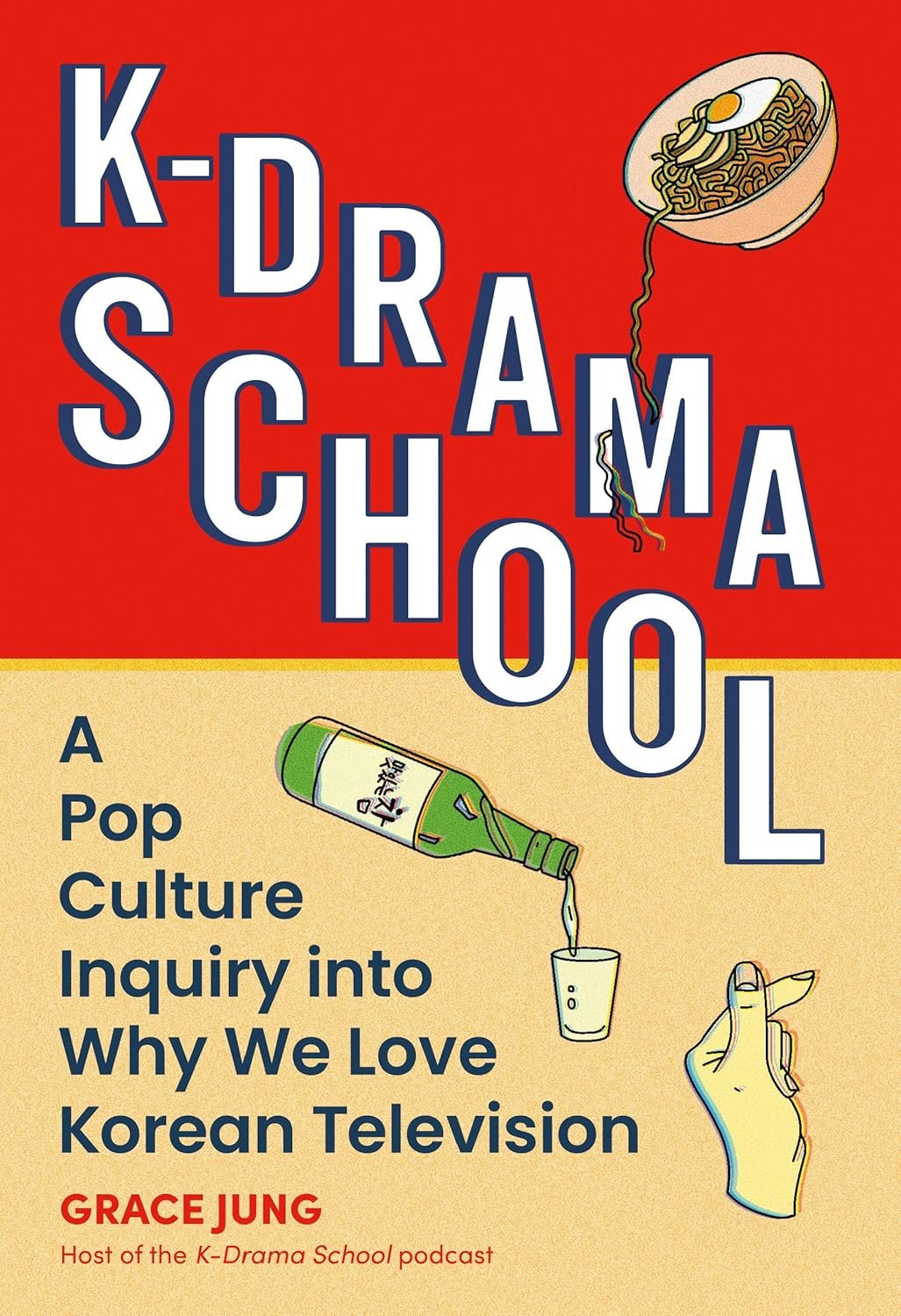K-Drama School: A Pop Culture Inquiry into Why We Love Korean Television
By Grace Jung
As a passionate viewer of K-dramas, my evenings are often spent absorbed in the familiar melodrama, romance, and occasional absurdity of these captivating series. So when I stumbled upon Grace Jung’s K-Drama School, it felt like serendipity—an opportunity to delve not just into the shows I adore, but also into the cultural significance behind them. The thought of unpacking my binge-watching habits through an academic lens was irresistible!
From the opening pages, Jung’s witty and approachable style immediately struck a chord. Her background as a stand-up comedian shines through, making complex themes digestible and engaging. Each chapter feels like a cozy conversation with a well-informed friend, effortlessly weaving through topics ranging from tropes like “amnesia” and “slapping” (which, I must say, I never thought I’d see dissected so thoroughly) to the implications of product placements that have me wondering about my own fast-food habits.
One of the central themes Jung explores is how South Korea’s historical context—particularly its war-torn past—shapes narratives in television today. This thought-provoking analysis compelled me to reconsider why shows like Squid Game and Extraordinary Attorney Woo resonate on a global scale. They connect not just with audiences who share similar cultures, but with a broader group seeking escape, comfort, or even self-reflection through storytelling.
Her exploration isn’t just theoretical; it’s peppered with personal anecdotes that anchor her points in real-world experiences. For instance, she recounts her own love for Crash Landing on You, not merely as entertainment, but as a lens to understand interpersonal relationships and societal expectations. Jung’s insights on familiar themes, interspersed with humor, remind us that while we’re watching, we are also learning about ourselves and our societies.
One of the standout moments for me was her analysis of how K-dramas portray gender roles and representations of disability and race. This examination resonates beyond the screen, prompting the reader to ponder broader societal norms and expectations. Jung doesn’t shy away from criticism either; she challenges us to think critically about what we’re consuming.
Reflecting on my own viewing habits, I found myself nodding along to her descriptions. Her writing evokes fond memories of late-night binge sessions, where each cliffhanger left me gasping and reaching for the next episode. Not surprisingly, K-Drama School is filled with moments that made me laugh, ponder, and even shed a few tears, proving that Jung understands the emotional power of these narratives.
In conclusion, K-Drama School is a gem for anyone fascinated by the intricate relationship between culture and media. It’s not just for die-hard fans of K-drama but for anyone curious about why we gravitate toward certain stories. If you’ve ever curled up with a bowl of popcorn, lost in a world painted by K-drama magic, this book invites you to reflect on that experience in a delightful way.
Ultimately, Grace Jung transforms a simple inquiry into a lush exploration of identity, society, and storytelling. It left me feeling inspired and more deeply connected to the shows that sparkle on my screen. So, grab your copy, cozy up, and get ready to see your beloved dramas in a whole new light!
You can find K-Drama School: A Pop Culture Inquiry into Why We Love Korean Television here >>







